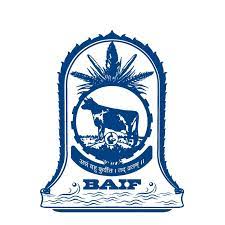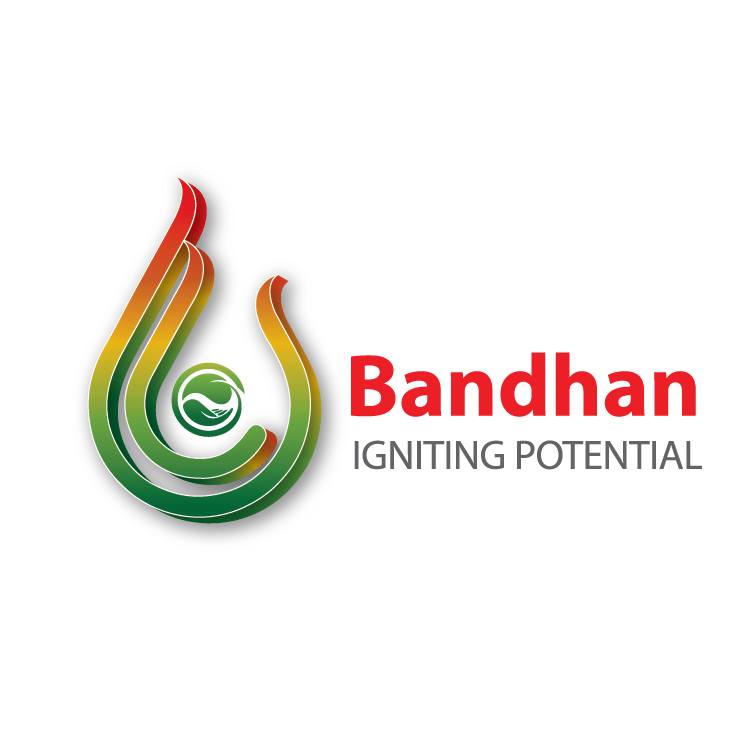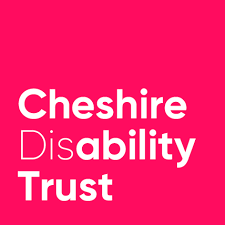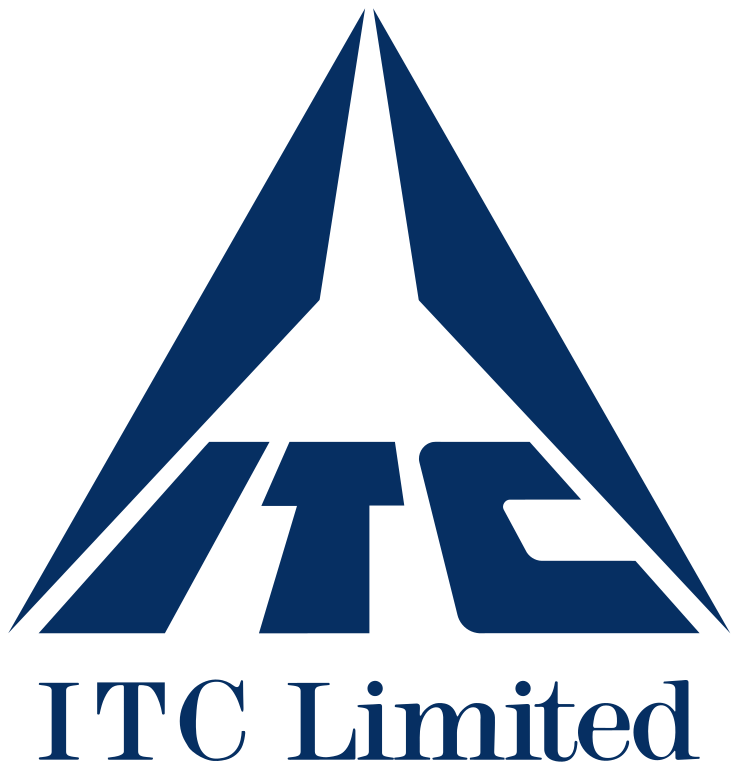About
ITC is one of India's foremost private sector companies and a diversified conglomerate with businesses spanning Fast Moving Consumer Goods, Hotels, Pa
Read more
perboards and Packaging, Agri Business and Information Technology. The Company is acknowledged as one of India's most valuable business corporations with a Gross Revenue of ₹ 69,446 crores and Net Profit of ₹ 20,422 crores (as on 31.03.2024). ITC was ranked as India's most admired company, according to a survey conducted by Fortune India, in association with Hay Group.
Multiple Drivers of Growth
ITC is the country's leading FMCG marketer, the clear market leader in the Indian Paperboard and Packaging industry, a globally acknowledged pioneer in farmer empowerment through its wide-reaching Agri Business, a pre-eminent hotel chain in India that is a trailblazer in 'Responsible Luxury'. ITC's wholly-owned subsidiary, ITC Infotech, is a specialized global digital solutions provider.
Over the last decade, ITC's new Consumer Goods Businesses have established a vibrant portfolio of 25+ world- class Indian brands that create and retain value in India. ITC's world class FMCG brands including Aashirvaad, Sunfeast, Yippee!, Bingo!, B Natural, ITC Master Chef, Fabelle, Sunbean, Fiama, Engage, Vivel, Savlon, Classmate, Paperkraft, Mangaldeep, Aim and others have garnered encouraging consumer franchise within a short span of time. While several of these brands are market leaders in their segments, others are making appreciable progress.
The core objective of ITC's CSR initiatives is to secure the livelihoods of these marginalised communities not just for today but also for the future. Creating Highly Collaborative Multi-stakeholder Partnerships is a key element in ITC's model. In most initiatives, ITC works in close collaboration with NGOs and target communities. NGO's are Project Implementation Agencies, interacting directly and extensively with target communities who have the final say in major decisions - ensuring that the interventions are suited to their needs and thus have the best chance of sustained success in the long run.
Other organisations - academic/technical service providers/financial institutions, etc, from both the public and private sectors - are brought in as required so that the best appropriate expertise is made available.
ITC also considers state and central governments to be important stakeholders, especially vital in amplifying the scale of its CSR programmes through public-private partnerships.
Grant Value
-
2023-24
Grant ValueRs. 4,04,05,00,000CSR BudgetRs. 4,03,47,00,000 -
2022-23
Grant ValueRs. 3,65,50,00,000CSR BudgetRs. 3,64,91,00,000 -
2021-22
Grant ValueRs. 3,51,13,00,000CSR BudgetRs. 3,54,27,00,000
Geographical Coverage
Organisations Supported
-
 Action For Food Production
Action For Food Production
-
 BAIF Institute for Sustainable Livelihoods and Development - Rajasthan
BAIF Institute for Sustainable Livelihoods and Development - Rajasthan
-
 Bandhan Konnagar
Bandhan Konnagar
-
 Cheshire Disability Trust
Cheshire Disability Trust
-
 Dhan Foundation
Dhan Foundation
-
 Mamta Health Institute For Mother And Child
Mamta Health Institute For Mother And Child
-
 SEWA Bharat (All India Federation of Self-Employed Women's Association)
SEWA Bharat (All India Federation of Self-Employed Women's Association)
-
WASH Institute
-
 Youth Invest Foundation
Youth Invest Foundation
-
 CRISIL Foundation
CRISIL Foundation
Programs
-
Afforestation programme
DescriptionGreening degraded lands, creating sustainable livelihoods, augmenting India's green capital through multi-stakeholder partnerships
The Indian Context
Many Indian farmers own degraded lands unsuitable for growing crops. For small farmers, this is creates an extremely difficult situation as they are barely able to earn enough to get by, let alone make the investments necessary to grow crops successfully and so remain locked in poverty and debt.
ITC's Contribution
ITC's Afforestation Programme assists farmers to turn their unproductive land assets into profitable pulpwood plantations, using clonal saplings specially developed by ITC R&D to grow in harsh conditions. Social Forestry is for impoverished farmers who are motivated to form Forestry Groups through which they get loans, subsidised clonal stock as well as technical support and training. There is a particular focus on Scheduled Tribe and Scheduled Caste households - who are generally among India's most economically and socially marginalised groups. Farm Forestry is for better-off farmers who can invest in growing pulpwood plantations.
The Programme brings multiple benefits to multiple stakeholders. Plantation incomes are significantly higher, especially beneficial for poor farmers, helping them to step away from penury and deprivation. For Indian paper producers, the plantations create a raw material source that is local, renewable and responsible. They also contribute to expanding the country's green cover thereby enabling large scale sequestration of carbon dioxide, enriching depleted soils and replenishing groundwater.CauseEnvironmentStatesTelanganaDemographicsFarmersImpactArea greened 11, 75,000Greened hectares of wastelands 2,24,000Person-days of employment created 1,00,00,000 -
Watershed Development Programme
DescriptionA collaborative model supporting community action to manage local water resources
The Indian Context
Water resource management is one of the most critical challenges facing the planet, especially for countries like India where agriculture is the livelihood for a major proportion of the population. Most are small farmers who depend on the yearly monsoon to grow crops. Volatile weather as a result of climate change is simply adding to their heavy burden - poor soils, lack of access to information and technology, inadequate infrastructure, inability to get credit from formal channels - keep these farmers trapped in poverty and they are among India's poorest, most vulnerable communities.
ITC's Contribution
Focusing on such farmers, ITC's Watershed Development Programme mobilises them to form water user groups and assists them to plan and carry out interventions such as building micro water harvesting structures to store water, taking various measures to reduce soil erosion, etc.
With water available for irrigation and improved soil fertility, farming is less exposed to weather risks and farmers can grow more than one crop in the year of better quantity and quality, significantly raising their incomes. Equipped with knowledge and training, working together as groups, farmers can take informed decisions towards making agriculture more secure for the future.CauseEnvironmentStatesAndhra PradeshBiharMadhya PradeshMaharashtraDemographicsFarmersImpactAcres where water resource management improved 16,00,000Person days of employment created 1,27,597 -
Sustainable agriculture programme
DescriptionStrengthening Farmer Resilience to Climate Change through collaboration
The Indian Context
The majority of Indian farmers own very small plots and practice rain-fed agriculture, depending almost entirely on the yearly monsoon for irrigation. A bad monsoon - too little, too much or untimely rain - means that they are unable to sow or harvest successfully. Poor soils, high cultivation costs and inefficient farming methods worsen the situation, leading to low productivity and uncertain incomes. Erratic weather patterns caused by climate change are making their risky livelihoods even more precarious.
ITC's Contribution
ITC's Sustainable Agriculture Practices Programme is designed to assist such small farmers to cope with these challenges. Demonstration plots and farmer field schools in villages give them information and practical training on climate smart farming practices and technologies, e.g. water saving irrigation devices, organic pesticides and fertilisers, mechanisation appropriate for small plots, etc.
The interventions help farmers to conserve and manage soil and water resources, improve crop yields and reduce cultivation costs - leading to higher incomes and fewer incidences of crop failure, making farming less risky and a more sustainable livelihood now and in the future.
The ‘Adarsh Gram Programme’ pioneered by your Company’s Agri Business presently covers 361 model villages in the states of Andhra Pradesh and Karnataka. Under this initiative, your Company supports villages to become economically, ecologically and socially sustainable. Your Company is also addressing the human rights and farm safety challenges in these villages by educating the farmers, labour & community, providing access to Personal Protective Equipment (PPE) kits and adopting smart technologies like drones for spraying activities on the farms.
The ‘Baareh Mahine Hariyali’ programme in select districts of Uttar Pradesh (Chandauli, Ghazipur, Prayagraj and Varanasi) is a pioneering initiative to facilitate farmers to enhance their incomes. This programme is founded on a 360-degree, multipronged
approach with interventions such as increased cropping intensity with a third crop during summer, enhancement of productivity through context-specific agronomic practices demonstrated through Choupal Pradarshan Khets (on-farm demonstrations) and provision of market linkages with transparency in assessment of quality, price and weighment. In some regions, taking a holistic approach to income diversification as an adjacency, livestock development, women empowerment and agro-forestry
are also included. Over 50,000 farmers have direct linkages and another 5,00,000 farmers have benefited from the interventions under this programme. Farmers have reported increase in their incomes and also resilience to weather vagaries.CauseAgricultureStatesAndhra PradeshKarnatakaWest BengalBiharMadhya PradeshRajasthanUttar PradeshDemographicsFarmersImpactPercentage by which profit earned increased 311Acres of farm productivity increased 5,67,000 -
Livestock Development Programme
DescriptionCreating multi-stakeholder partnerships to diversify & increase farm incomes by upgrading cattle
The Indian Context
While agriculture is the backbone of India's rural economy, livestock rearing is also a vital contributor. Almost all rural households own livestock - even landless families will own one or two cows or buffaloes. For the poorest among these families, livestock is often their only sustained source of income. However, in general milk yields are extremely low a result of poor nutrition and genetic quality.
ITC's Contribution
ITC's Livestock Development Programme provides artificial insemination services to produce calves with significantly higher milk yields - producing enough surplus that can be sold. Cattle Development Centres in villages provide services right at the owner's doorstep which also include veterinary support to ensure proper health and nutrition.
Having surplus milk for sale brings in extra income, especially useful for poor households. With the additional income and experience, families can invest increasing their herds, paving the way for dairying to become a viable livelihood option.
Cattle-owners are encouraged to join together and form milk marketing societies so that they can reduce logistic costs and connect to larger markets to get higher prices. In selected areas, ITC also sets up modern milk collection centres where scientific testing ensures better prices for better quality, motivating owners to invest more in cattle health and nutrition.CauseLivelihoodDemographicsLandless familiesCattle ownersLivestock rearersImpactAnimal husbandry services provided 12,00,000Women trained as ‘Pashu Sakhis’ 1,040Average monthly income of goat owners 13,000Dairy farmers benefitted 43,212 -
Women's empowerment programme
DescriptionEnabling Economically Disadvantaged Women to Earn Higher/Independent Incomes through multi-stakeholder partnerships
The Indian Context
Women, especially poor women in rural areas, remain the invisible backbone of their households and communities. However, their many disadvantages - poor education, limited opportunities for skills training, few property rights, restrictive social norms - mean low-paying labour work is often their only option. Whatever they earn is almost always spent on improving the quality of life of their families
ITC's Contribution
ITC's Women's Economic Empowerment Programme aims to provide these women with opportunities to earn independent incomes, helping to strengthen their position as decision-makers in their families and in their communities. There is a special focus on ultra poor women - those living in extreme poverty who are the only earning members of their families and have no assets or regular incomes.
With training and financial support, women can take-up self-employment activities, set up small businesses or join together to form self-help groups or micro-enterprises. Their earnings and savings mean better education, nutrition and health for their children - a vital investment in the future of their communities. Equally important, the confidence they gain along the way is helping to break gender inequalities and build a more equal society.CauseWomen EmpowermentStatesBiharMadhya PradeshRajasthanTelanganaDemographicsPoor women in rural areasImpactWomen supported 28,50,000Sustainable livelihoods created for women 1,92,000Self help groups impacted 2,90,000Ultra-poor women supported 36,900Supported NGOsPartners for Women's empowerment programme -
Primary education programme
DescriptionCreating collaborative multi-stakeholder partnerships to retain students, stem drop-outs and improve learning outcomes
The Indian Context
A major obstacle that prevents poor children from progressing to a better future is the fact that they cannot get a decent education, starting right from the primary level.
ITC's Contribution
ITC's Programme aims to create enabling conditions so that more underprivileged children stay in school and complete their schooling, and also to improve learning outcomes so that they have better skills and abilities.
To create an atmosphere conducive to learning, the Programme provides infrastructural support to government primary schools - desks and chairs, lights and fans, classrooms and other structural improvements, textbooks and notebooks, sports kits, etc. Sanitation infrastructure is a top priority - separate toilets for boys and girls, drinking water and handwashing stations, etc - are backed by a proactive approach to developing hygienic habits among children.
To make learning more stimulating, the Programme partners with education providers to introduce modern teaching and assessment methods that help children to achieve higher learning levels and better results. For example, Read India Plus in partnership with Pratham, one of India's leading NGOs in the education field - focuses on enhancing reading and mathematical ability among 6 - 14 year olds. Supplementary Learning Centres in villages provide coaching to help weak students keep up in school and drop-outs to return to the school system.CauseEducationDemographicsUnderprivileged childrenDrop-outsStudentsImpactChildren reached 15,31,000Students mainstreamed into formal education 12,800Anganwadis reached 25,700Government schools and anganwadis with Infrastructure support 3,900 -
Skilling & Vocational Training Programme
DescriptionThe Indian Context
Every year around 15 million young boys and girls enter India's workforce - potentially an enormous pool of employable skilled talent - yet the country faces a huge skills gap. A major cause has been a lack of access to and focus on quality training in market relevant skills. Especially affected are young job-seekers from economically disadvantaged households in rural and semi-urban areas who make up the majority.
ITC's Contribution
Operating in its factory and agri-business catchments, ITC's Skilling & Vocational Training Programme provides them with much-needed opportunities to access high quality but affordable market-linked skills closer to their homes. Focusing on the most disadvantaged - economically and socially - it offers them a basket of market relevant skills in the manufacturing and services sectors, supported by employment linkages.
By providing these young citizens with industry-ready skills, the Programme enhances their employability in today's competitive business environment so that they can fulfil their aspirations for a brighter future.CauseLivelihoodDemographicsJob-seekersEconomically and socially disadvantagedImpactYouth trained (including differently abled) 1,12,000 -
Health and sanitation programme
DescriptionPromoting Health & Dignity, Ending Open Defecation through collaborative multi-stakeholder partnerships
The Indian Context
Ending open defecation and ensuring all citizens have access to proper toilet facilities is a top priority on India's national agenda. However, building toilets must go hand-in-hand with strategies to encourage people, especially in rural India, to change age-old habits and use the toilets regularly and in a hygienic way.
ITC's Contribution
ITC's Health & Sanitation Programme aims to build awareness on the critical link between sanitation and health so that families come forward with the interest in building toilets for themselves. For maximum impact, campaigns are customised for different groups - men, women, children, community leaders, etc.
Community groups - generally women's self-help groups - are formed and they carry out most of the activities: identifying potential households, providing information and building awareness, managing funds, supervising construction, following up on usage. Families get a loan through the Group to build the toilet but must pay part of the cost. Their financial stake fosters a strong sense of ownership and encourages regular usage.CauseWASHStatesKarnatakaUttar PradeshDemographicsRural householdsImpactBeneficiaries impacted 14, 61,000Cataract surgeries conducted 500Individual household toilets built 44,023Women, adolescents and children screened for anaemia 36,000Pregnant women who were reached by trained Anganwadi Sevikas 9,50,000Diagnostic tests conducted 22,500People were screened for eye problems 91,000Adolescent girls, pregnant & lactating women benefitted 1,70,000Staff from various Government departments trained 2,500Women and adolescent girls informed about health awareness 1,54,000 -
Solid waste management
DescriptionBuilding an Effective Waste Management Chain through Multi-Stakeholder Partnerships
The Indian Context
Waste generation in India has soared steeply, mainly as a result of three factors - a large and growing population, rapid and unplanned urbanisation and, perhaps most importantly, swiftly rising consumption levels. However, waste disposal and management infrastructure has lagged severely, creating a massive problem. Heaps of waste are a common sight in towns and cities and the majority goes untreated into landfills - a serious public health risk, environmental hazard and an enormous waste of resources.
ITC's Contribution
ITC's Well-being Out of Waste (WOW) initiative promotes awareness about the importance of source segregation and recycling, and establishes systems to ensure effective practice. It collaborates with local municipalities to train waste workers and rag-pickers in these concepts and to provide an efficient collection system that covers virtually all segments: households, offices, schools, hospitals, commercial establishments, etc.
Proper segregation reduces the amount of waste going to landfills while the dry waste collected provides competitive raw material to several industries, e.g. glass, paper and plastic. Rag-pickers and waste workers also earn higher and more regular incomes.
Along with WOW, ITC is also implementing several other waste management projects along the same lines but tailored to local situations, e.g. promoting home composting or involving women's self-help groups.CauseEnvironmentDemographicsCommunityImpactHouseholds reached 50,59,000
Impact
Annual Reports
-
2024
-
2023
-
2022
Leadership Team
Website
Location
Contact
-
Email ID
contactus@itc.in
-
Phone Number
91-33-22889371
Point of Contact
-
Name
contactus@itc.in
-
Email ID
contactus@itc.in
News
Awards & Recognitions
1. ITC Wins First Prize At National Water Awards : 2022
2. Winner of 1st UNDP-Mahatma Biodiversity Award for ‘Human Centric Approaches to Biodiversity’ : 2024
3. ‘Winner’ under ‘Empowerment (large corporate) category’ for its Targeting Hardcore Poor (THP) Programme in the Second edition of Social Leadership Awards organised by Bengal Chamber of Commerce & Industry. : 2024
4. Golden Peacock Award for Corporate Social Responsibility: Awarded for excellence in CSR, recognizing ITC's impactful initiatives in various social sectors. : 2021
5. Golden Peacock Award for Corporate Social Responsibility: Awarded for excellence in CSR, recognizing ITC's impactful initiatives in various social sectors. : 2022
6. CII-ITC Sustainability Awards:ITC received the 'Commendation for Significant Achievement' in the domain of CSR and sustainability. : 2020
7. FICCI CSR Award:Awarded for ITC’s innovative and effective CSR programs, especially in areas of livelihood creation and environmental sustainability : 2020
8. ASSOCHAM CSR Excellence Awards:Recognized for ITC’s substantial contribution to CSR, focusing on community development and social upliftment. : 2020
9. CSR Impact Awards:ITC was honored for its large-scale impact in areas such as education, health, sanitation, and sustainable agriculture. : 2021
10. ET 2 Good 4 Good Awards:ITC received this award for its extensive work in CSR, especially during the COVID-19 pandemic, providing relief and support to affected communities. : 2021
11. India CSR Awards:Recognized for ITC's exemplary work in CSR, particularly in sustainable livelihood and environmental conservation projects. : 2021





